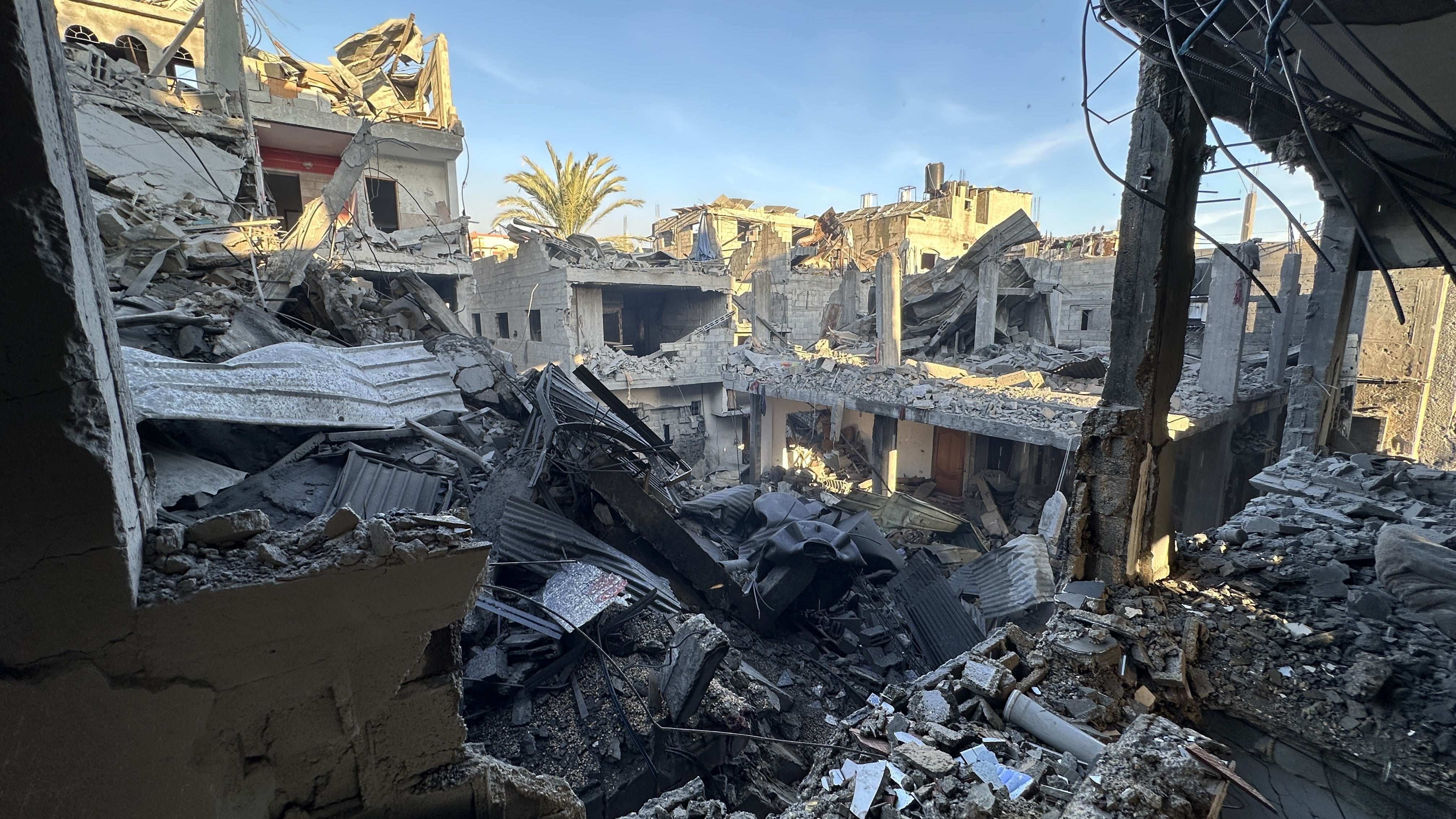Israeli airstrikes kill ‘at least 110’ in Gaza as Ben Wallace condemns ‘killing rage’
Strikes continue across the territory as Israel faces increasing international pressure for a ceasefire
Airstrikes in the Gaza Strip have killed at least 110 people across the last 24 hours, as Israel’s leadership faces growing international pressure for a ceasefire.
It came as British former defence secretary Ben Wallace warned Israel’s indiscriminate “killing rage” in Gaza risks fuelling the conflict “for another 50 years” and radicalising young Muslims across the world.
Mr Wallace said Israel could lose moral and legal authority over its war on Hamas, which was in response to an attack inside Israel that killed 1,200 people and saw 240 others taken hostage.
Residents of Gaza compared the latest strikes on Jabalia refugee camp to an “earthquake” as footage showed Palestinian civilians rushing to the site to rescue those buried alive under the rubble, as well as to retrieve the bodies of the dead.
Northern Gaza, where the camp is located, remains the site of heavy fighting. Israel’s defence minister Yoav Gallant, one of three members of the country’s war cabinet, claimed last week that the Hamas authority in the northern half of the enclave was “on the verge of being dismantled” after a months-long ground offensive there.
Israeli soldiers have also moved into the southern half of Gaza, encircling the main city of Khan Younis and continuing an aerial bombardent that the United Nations had hoped would be less severe.

Nearly 19,000 Palestinians have been killed in the past 10 weeks. But as the Palestinian death toll rises towards 20,000, Israel’s western allies have become more vocal about the need to avoid civilian casualties.
UK Prime Minister Rushi Sunak has piled pressure on Israel over the need for a “sustainable ceasefire” in Gaza, saying that “too many lives have been lost” in the bombardment of the territory.
The prime minister also called for increased access for much-needed humanitarian aid for the besieged enclave.
Germany also called for a “sustainable ceasefire” on Sunday night, while US President Joe Biden last week admitted that Israel’s bombing campaign was “indiscriminate”.
The Hamas-run health ministry said the latest round of strikes on Jabalia hit a residential block belonging to the al-Barsh and Alwan families, Palestinian news agency Wafa reported, killing around 90 people.
Another missile attack on a house belonging to the Shehab family killed 24 people, Hamas Aqsa radio said.
The Palestinian civil defence has been unable to reach the camp, according to a journalist in the area, so rescue efforts have fallen to local civilians, many of whom will have been directly affected by the strikes.
In a region in which multiple generations have been prevented from leaving, and many have been displaced into camps such as Jabalia after previous rounds of fighting, it is not uncommon for whole families to be wiped out.
The first 88 people on a list of those killed in Gaza since 7 October, published several weeks later, were all from the extended al-Atsal family, according to health ministry spokesman, Ashraf al-Qudra.
The next 72 were Hassounas. The next 65 al-Najjars. The next 60 al-Masrys. The next 49 al-Kurds.
It is unclear who Israel was targeting in Jabalia but the son of Dawoud Shehab, spokesman of the Palestinian militant group Islamic Jihad, was reportedly among those killed in the strikes on Jabalia.
Nevertheless, Palestinians have complained that Israel is targeting Hamas militants while they are with their families instead of killing them in isolation.
Speaking generally, Sami al-Astal, a distant relative of one family that has been decimated by the 10 weeks of strikes, told the New York Times: “If you want to assassinate him, assassinate him alone. If you want to assassinate him, why did you do it with his children and his family while they were at home?”
Israel counterclaim that Hamas uses civilians in the region, including their own families, as human shields.
Join our commenting forum
Join thought-provoking conversations, follow other Independent readers and see their replies
Comments
Bookmark popover
Removed from bookmarks